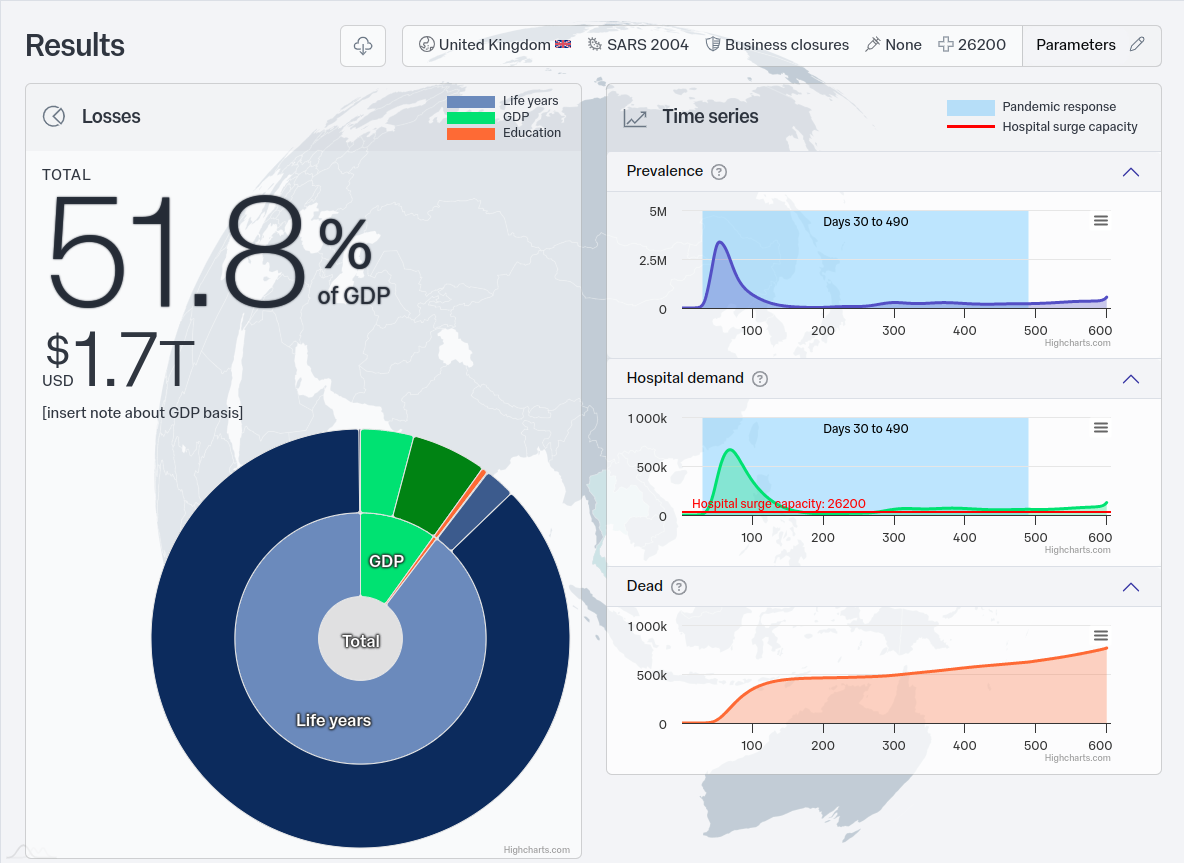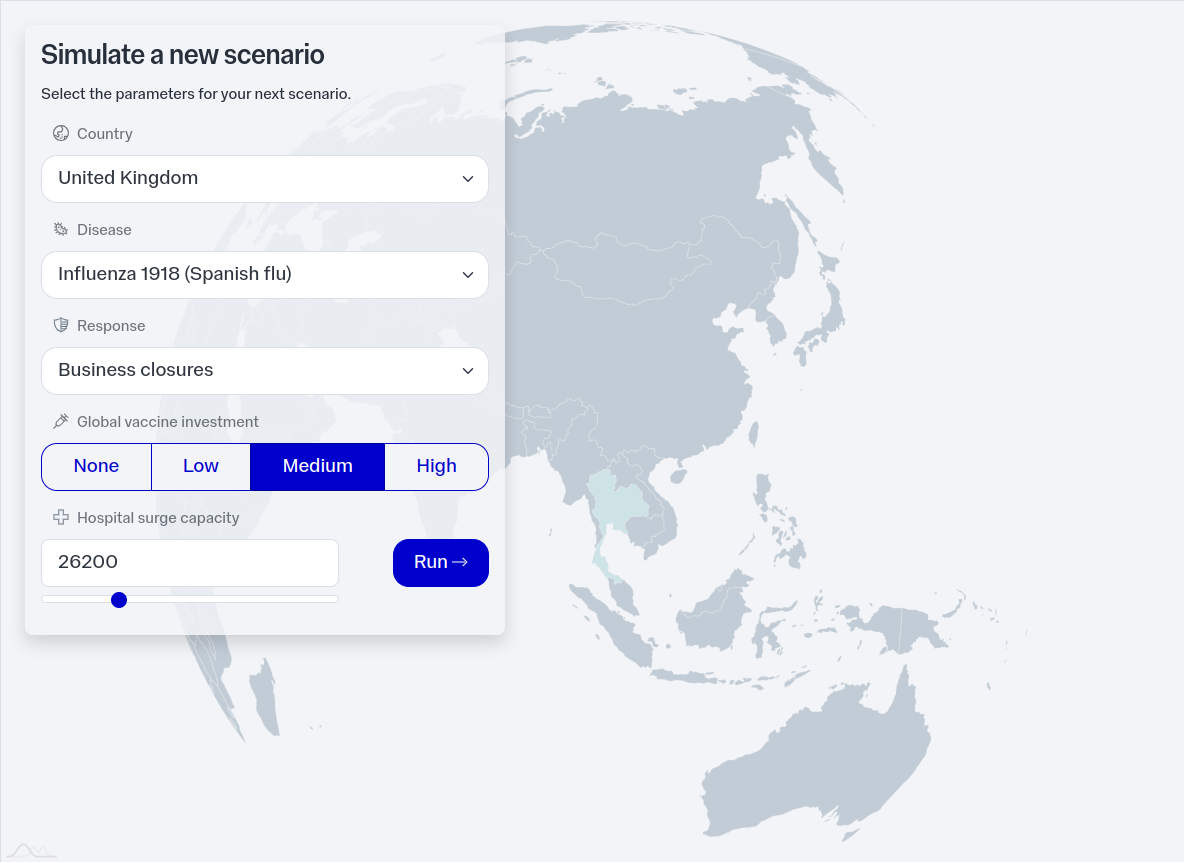New global initiative to offer crucial insights to international agencies and transform humanitarian response in conflict zones
-
The Jameel Institute – Realtime Intelligent Support for Emergencies (JI-RISE) is a new digital initiative to transform the humanitarian response for people injured, malnourished and at risk of disease in conflict zones.
-
JI-RISE will, in its initial phase, support agencies in responding to the crises in Gaza and Sudan, with the potential to further support millions of people worldwide.
-
Data from JI-RISE on traumatic injuries, malnutrition, mortality and vaccination planning will support a consortium of humanitarian organisations and research institutions, including United Nations agencies and Médecins Sans Frontières.
Jameel Institute Realtime Intelligence Support for Emergencies (JI-RISE)
The Jameel Institute at Imperial College London and the London School of Hygiene and Tropical Medicine (LSHTM) announced today the launch of a new initiative that will deliver critical data – including on traumatic injuries, malnutrition, mortality and vaccination planning – to humanitarian organisations and policymakers amid crises to help them effectively prioritise aid response.
Named the Jameel Institute – Realtime Intelligent Support for Emergencies (JI-RISE), the initiative is supported by Community Jameel, an international organisation that advances science and learning and co-founder of the Jameel Institute, and expands on work previously funded by the Foreign, Commonwealth and Development Office (FCDO) to model future mortality rates in Gaza.
Deployed initially in Gaza and Sudan and with the potential to operate worldwide, JI-RISE will collaborate with a consortium of humanitarian organisations and research institutions, including the World Health Organization (WHO), the United Nations Office for the Coordination of Humanitarian Affairs (OCHA) Centre for Humanitarian Data, Médecins Sans Frontières and the Geneva Water Hub. In this initial phase, JI-RISE will seek to help hundreds of thousands of people in Gaza and Sudan, with the potential to further support millions of the most vulnerable people worldwide.
A team of 24 researchers from Imperial and LSHTM will initially collaborate on JI-RISE, including staff working with the WHO Health Emergencies Programme to support the WHO’s disease outbreak response plans in humanitarian emergencies, such as ongoing efforts to tackle an outbreak of polio in Gaza.
JI-RISE will also support displaced Gazan public health researchers, who will join the JI-RISE team and contribute to its mission to improve public health response during crises
The team will work with humanitarian agencies to enhance the delivery of specific aid programmes in conflict zones. To better understand the health impacts of disrupting routine vaccinations, the JI-RISE team will develop a planning tool to visualise the timelines and risks associated with these disruptions. JI-RISE will additionally provide historical mortality estimates and develop predictive models to strengthen Médecins Sans Frontières’ medical interventions for traumatic injuries.
In conflict zones like Gaza, the lack of detailed data on health impacts can hamper effective responses. While the immediate effects of conflicts are visible, the broader health repercussions due to disrupted services are poorly understood. Our mission is to create robust models to understand these impacts, ensuring that decision-making processes for allocating scarce resources are more transparent, accountable and, most importantly, focus on the most vulnerable people.
Dr Oliver Watson, lecturer and Eric and Wendy Schmidt AI in Science Fellow at Imperial College London and JI-RISE initiative lead.
Sadly over the past decade conflicts have become longer and more violent with limited humanitarian access and disruptions to healthcare. Projects such as this are critical to enable humanitarian actors to better understand and plan for more effective responses given the overwhelming needs and constrained resources. Our aim is for the outputs of this project to be applicable beyond the current crisis in Gaza and we are grateful for the support of field colleagues to ensure they are fit for purpose and ready for operational use.
Dr Bhargavi Rao, Clinical Associate Professor in Humanitarian Health at LSHTM and co-principal investigator of the JI-RISE project
Non-combatants caught up in conflict rely on humanitarian aid to survive terrible suffering – for civilians in Gaza and Sudan, this includes traumatic injuries, starvation and outbreaks of infectious disease. JI-RISE uses the power of data modelling to cut through the fog of war and give humanitarians a clearer picture of what is needed, by whom, when and where – thereby helping deliver aid more effectively and saving lives.
George Richards, Director Community Jameel
The Jameel Institute at Imperial is a centre of excellence founded in 2019 by Imperial and Community Jameel to combat disease threats worldwide. Over 100 mathematical modellers, epidemiologists and other researchers from across Imperial collaborate with the Jameel Institute on its pioneering work. The grant from Community Jameel to establish JI-RISE is the largest gift to-date received by Imperial in response to the Gaza crisis.
The concept for JI-RISE was developed following a roundtable meeting in February 2024, co-chaired by Mark Bryson-Richardson MBE, the Foreign Secretary’s Representative for Humanitarian Affairs in the Occupied Palestinian Territories, and George Richards, director of Community Jameel, that brought together scientists and humanitarians to harness British science for the Gaza emergency.
NEXT STORY

-
The Jameel Institute will be hosting a workshop event this November in Bangkok to soft launch DAEDALUS Explore among leading infectious disease researchers, modellers and policymakers
-
DAEDALUS Explore is powered by an innovative integrated economic-epidemiological model which addresses the agonizing trade-off between lives-and-livelihoods made in epidemic preparedness and response policymaking
What is integrated modelling and why is it so important to the success of future epidemic policymaking?
We all bear witness to the ways in which the COVID-19 damaged society. Over the course of the pandemic there were 15 million excess deaths; there was the largest global economic crisis in more than a century; and many millions of students experienced an isolated, inadequate and interrupted education. And in the midst of the public health disaster, policymakers often found themselves making near-impossible decisions balancing the trade-off between lives and livelihoods.
Unfortunately, many countries did not have the tools or evidence to make informed decisions about these trade-offs. As a result, public health, economic and educational policies were often developed and adopted in silos. Yet lives and livelihoods are entangled and attempts to create a divide between the two denies this reality and ignores the suffering that arises from the unintended consequences.
This policymaking dilemma led to an explosion of research into integrated economic-epidemiological (econ-epi) modelling. Econ-epi models utilise a mix of economic data (such as what % of a country’s workforce works in each business sector) and epidemiological data (such as the transmissibility of a pathogen). The models may also map out relationships between the two types of data inputs (for example, they may tease out the average transmission rate of a pathogen by business sector). These data feed into a mathematic model and output both economic and epidemiological outcomes of interest – such as expected GDP loss or lives lost in a future pandemic scenario.
Econ-epi models can therefore help overcome policy silos by providing decision makers with answers to the agonizing lives-and-livelihoods trade-offs, such as “How much international tourism can we allow to continue while ensuring our hospitals are not overwhelmed with patients?” or “What vaccine coverage do we first need to achieve to be able to re-open schools without causing a significant increase in excess deaths?”. Econ-epi models can also project the benefits of better pandemic preparedness, for example, bolstered vaccine manufacturing capacity or increases in hospital capacity.

Moving from DAEDALUS to DAEDALUS Explore
During this period of rapid interest and growth in econ-epi modelling, the Jameel Institute was at the fore.
With generous support from Community Jameel and Kenneth C. Griffin, the Institute has now developed DAEDALUS: an integrated econ-epi model that can simulate alternative pandemic preparedness and response interventions before and during an epidemic that help to keep infections under control while minimizing economic damage.
Professor Katharina Hauck, Director of the Jameel Institute’s Economics of Pandemic Preparedness Initiative (EPPI).
The model is currently tailored to around 60 countries and 7 pathogens with pandemic potential, meaning that the model is designed to generate much-needed context-specific evidence.
Now, the Jameel Institute’s EPPI team are taking the model one step further by using it to build DAEDALUS Explore: an online dashboard for policymakers to see how different levels of pandemic preparedness and response would impact deaths and the economy in their country of interest under different pandemic scenarios. Professor Hauck adds:
“With DAEDALUS Explore, we are turning a complex model into an easy-to-use tool. We can empower decision makers in countries around the world to make the best decisions for pandemic preparedness, and to navigate between lives-and-livelihoods when responding to pandemics. The Jameel Institute hopes that DAEDALUS Explore becomes a valuable global public good to support effective pandemic preparedness and response in the future.”
Video
Next steps to making DAEDALUS Explore a global public good
With this vision in mind, the Jameel Institute are excited to be hosting a workshop alongside colleagues from the National Centre for Infectious Diseases, Singapore, in the lead up to the inaugural Infectious Disease Modelling Conference. At the event, some of the world’s leading infectious disease researchers, modellers and policymakers will come together to put the DAEDALUS Explore prototype to the test. At the workshop, which will be held on the 5th of November in Bangkok, attendees will be the first cohort ever to receive access to and training on integrated modelling, and on DAEDALUS Explore. The workshop will also be used to gather invaluable feedback on whether DAEDALUS Explore and the information it communicates is straightforward, transparent and useful. This workshop therefore represents a key stepping stone in the Jameel Institute’s journey to ensuring DAEDALUS Explore is the best it can be before launch in autumn next year.
Find out more
- If you are attending the Infectious Disease Modelling confererence this November, we would love for you to join us out our pre-conference workshop. Full details and sign-up here!
- If you are interesting in finding out more about DAEDALUS Explore in advance of next year's launch, please contact Professor Katharina Hauck here.
